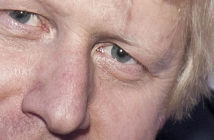A limit on the number of high-stakes gambling machines allowed in each betting shop should be lifted to prevent high streets from being overrun by gambling outlets, a parliamentary select committee has said. But campaigners have called the move a ‘one-way bet towards more addictive gambling machines’.
Under the 2005 Gambling Act bookmakers are limited to four machines per shop. The machines are enormously lucrative, so bookmakers have sidestepped the limit by simply opening more branches in areas where the machines are in high demand. These are often in tight ‘clusters’, with several betting shops on a single street or surrounding a particular junction.
Related story: How Britain got addicted to bookies’ betting terminals
Communities and campaigners have claimed that such clusters ‘sap the soul’ of urban areas, fuel antisocial behaviour and debt, and can deter people from high streets that are already struggling to survive. In an attempt to address this concern, the select committee’s report calls for councils to be given the power to increase the number of machines allowed in each shop as a ‘local solution’ to avoid such clusters from developing. It did not suggest an upper limit.
“The powers to decide the number of fixed-odds betting terminals in shops is too indirect to be considered a great leap forward for localism.”
– David Lammy MP
The current limit of four terminals in each shop was agreed with the bookmaking industry soon after the machines arrived in the UK in 2001, with the aim of avoiding Australian-style ‘pokie sheds’, which can hold hundreds of gaming machines. The limit became law in the 2005 Gambling Act.
The report also suggests that fixed-odds betting terminals should be allowed in adult gaming arcades for the first time, and the number of such machines allowed in casinos should be increased.
The panel heard from academics and campaigners who were concerned at the increasing availability of the machines, formally known as fixed-odds betting terminals, and at the lack of research on whether they contribute to the UK’s rising rates of problem gambling.
Related story: Are betting terminals dangerously addictive?
There are currently an estimated 451,000 problem gamblers in the UK, a rise of almost 90,000 since the Gambling Act came into force.
Gareth Wallace of the Salvation Army, who gave evidence to the select committee, said: ‘This is a one-way bet towards more addictive gambling machines in our communities. Betting shops are making more and more profit from virtual games, away from real horses.
‘We are perplexed that the committee would recommend a further liberalisation of gambling machines when they have heard evidence that problem gambling is on the rise. If the committee gets its way, betting shops will be subject to no compulsory limit on these machines and, for the first time, gaming arcades will be allowed to operate them.’
Related story: Infographic – Wheel of Fortune
Industry organisation the Association of British Bookmakers said: ‘We’re pleased the committee and the report recognise the industry for what it is: a legitimate and popular entertainment activity that deserves support from the government… We’re interested in the recommendations around finding local solutions to local issues as an alternative to a top-down approach and look forward to discussing the detail with the committee and the department in the coming weeks and months.’
David Lammy, who has campaigned against the clustering of betting shops in his Tottenham constituency, welcomed the report and said: ‘It is increasingly difficult for the government to continue ignoring the concerns that these clusters are sapping the souls and identities of our high streets.’
But he said the proposal to increase the number of machines in each shop was ‘misguided’.
‘This will make very little impact on clustering as it will only deter the same firm from opening a new shop nearby when most clusters are formed as a result of new entrants, such as Paddy Power or Betfred opening up near the profitable sites of industry giants such as William Hill and Ladbrokes. Increasing the number of terminals in shops will entrench existing clusters as well as making each shop more profitable. The powers to decide the number of fixed-odds betting terminals in shops is too indirect to be considered a great leap forward for localism.’
Lammy is calling for betting shops to be given their own planning category so that councils can block new openings if they see fit. ‘This way, communities have a direct say as to whether they believe there are enough betting shops in their area, as opposed to being presented with a false choice of more shops or more betting terminals.’
The full report, The Gambling Act 2005: A bet worth taking? is published today.
Related story: Gambling – The secret addiction





